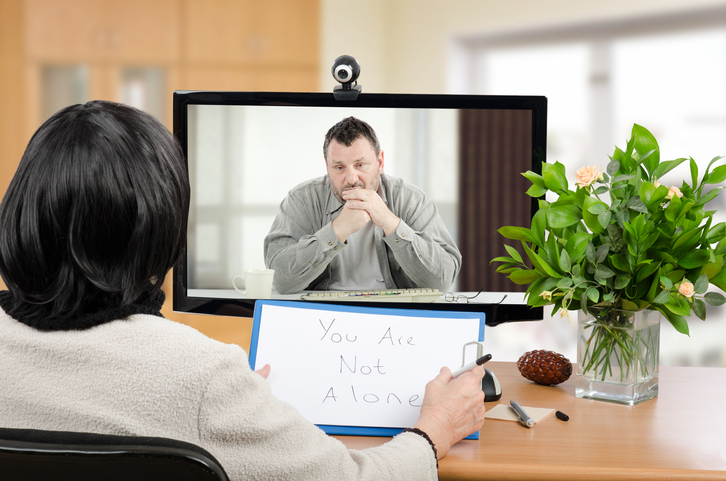
The long-term mental health impacts of the coronavirus pandemic are beginning to be discussed in earnest. Counselling therapists should remain attentive to how the stress and trauma of the pandemic may exacerbate existing mental health problems or create new ones. Epidemic studies research shows that PTSD, or post-traumatic stress disorder, is relatively common among people exposed to the trauma of an infectious disease epidemic (Xiao et al, 2020).
PTSD is a source of clinically significant distress and impairment and brings symptoms such as negative alterations in mood and/or cognition and the persistent intrusion of memories or feelings (Xiao et al, 2020). If a counselling therapist’s clients are experiencing these symptoms due to the coronavirus pandemic, here are three ways they can be helped.

Lean into Culturally Competent Counselling
Becoming culturally competent within your counselling practice has always been important, and the coronavirus pandemic has made this clear. Unfortunately, due to waves of misinformation and the politicizing of politicians, some reactions to the coronavirus have been inflected by racism. Those who identify as or appear as having East Asian heritage may experience elevated levels of stress, due to the racism and xenophobia they have been facing (Suh Moh & Sperandio, 2020).
Counselling therapists should understand how these clients may face a different set of stressors during the pandemic that culminate in different long-term effects. These clients may fear verbal and physical attacks triggered by fears of infection (Suh Moh & Sperandio, 2020). Even things such as stress related to widespread economic impacts may differ. Many Chinese establishments, such as restaurants, were boycotted earlier in the pandemic due to misunderstandings around how the virus spread (Suh Moh & Sperandio, 2020). Practicing culturally sensitive counselling means being aware of the racial, ethnic, and cultural backgrounds of clients, and trying to understand how that may impact their experiences.
Validate the Difficult Realities of the Pandemic
One of the most important ways counsellors can help their clients mitigate the impacts of coronavirus-related trauma is by affirming their feelings. Clients’ fears, anxieties, and emotional reactions should be normalized and validated, and counsellors should avoid needlessly pathologizing normal fearful reactions (Suh Moh & Sperandio, 2020). It is central that those affected by the pandemic retain a sense of their identity, and that their responses aren’t conceptualized as maladaptive pathology (Inchausti et al, 2020).
Though some people may have a severe response to the trauma and stress of the pandemic, it is important for counselling therapists to conduct themselves carefully. Literature has shown that intervening in a person’s natural coping methods may increase the likelihood of developing PTSD (Inchausti et al, 2020). Most clients will recover by having their security restored, strengthening their social connections, and receiving psychosocial support. Referral to specialized intensive psychiatric intervention will typically only be necessary for those who are severely affected (Xiao et al, 2020).

Counselling Therapists Should Help Their Clients Exercise Agency
To help clients cope with PTSD resulting from the coronavirus pandemic, professionals in a counsellor therapist career can help them stay grounded in their agency. Those who are impacted may experience feelings of vulnerability, loss of security, and lack of safety, which can exacerbate trauma and stress symptoms (Suh Moh & Sperandio, 2020).
Clients can be advised to exercise choice, lowering the potential for trauma responses to become heightened by feelings of helplessness and powerlessness (Enns, 2020). Counselling therapists can advise clients to choose their daily routine, the kinds of information they consume, and the distractions they engage in (Enns, 2020). Clients can be guided through assessments of where in their lives they are able to exercise their agency, instead of just dwelling on where their autonomy has been lost to the pandemic.
Are you ready to begin your counselling therapist training?
Contact Rhodes Wellness College for more information.
Works Cited
Enns, V. (2020). How to Cope with Post-Traumatic Stress During COVID-19. Crisis & Trauma Resource Institute. https://ca.ctrinstitute.com/blog/how-to-cope-with-post-traumatic-stress-during-covid-19/
Inchausti, F., MacBeth, A., Hasson-Ohayon, I., & Dimaggio, G. (2020). Psychological Intervention and COVID-19: What We Know So Far and What We Can Do. Journal of contemporary psychotherapy, 1–8. Advance online publication. https://doi.org/10.1007/s10879-020-09460-w
Suh Moh, Y. & Sperandio, K. (2020). How do counselors support clients during the coronavirus pandemic?. Counseling Today. https://ct.counseling.org/2020/04/how-do-counselors-support-clients-during-the-coronavirus-pandemic/
Xiao, S., Luo, D. & Xiao, Y. (2020). Survivors of COVID-19 are at high risk of posttraumatic stress disorder. glob health res policy 5, 29. https://doi.org/10.1186/s41256-020-00155-2









